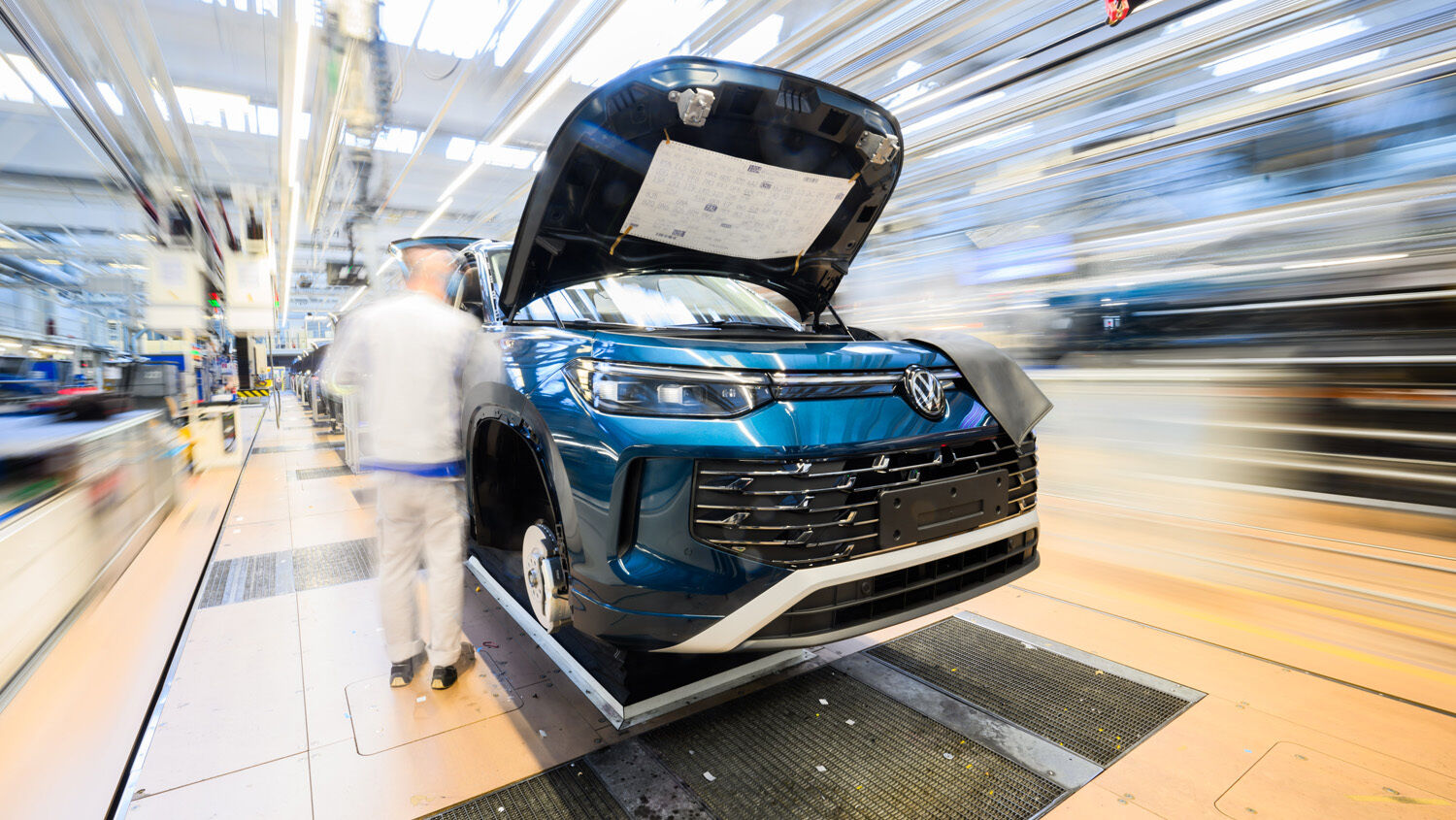
German Car Companies Are Back on the War Track
Germany’s car industry is struggling. Europe’s biggest carmaker, Volkswagen, has seen its earnings plummet by nearly 64 percent in the third quarter of 2024 compared with the same quarter the year before. The crisis is so severe it has caused three plant closures and tens of thousands of layoffs.
The global market is shifting toward electric vehicles (EVs), and Volkswagen models lag far behind those of Tesla. German companies also face brutal competition from China, which dominates the EV market.
In response, Volkswagen subsidiary Audi is planning to halt EV production at its plant in Brussels and lay off around 3,000 workers. The German automotive industry may lose another 140,000 jobs over the next decade, the president of the German Association of the Automotive Industry warned.
However, these people might not be unemployed for long. They could soon find themselves working at automotive assembly lines retooled to roll out tanks and other defensive vehicles.
In March, Volkswagen announced it would consider building equipment for the German military as part of Europe’s efforts to rearm. “[I]f there was the option of military vehicles going forward, we would have to look at the concepts. … We did that in the past,” said ceo Oliver Blume.
A few weeks later, Armin Papperger, ceo of Rheinmetall, Germany’s biggest arms producer, visited a Volkswagen plant in Osnabrueck of northwest Germany. Volkswagen had agreed with unions last December to end production there, but Papperger said the site would be “very suitable” to be repurposed for defense production.
Rheinmetall is doing extremely well, with share prices up 160 percent in just the past six months. Just this month, Rheinmetall (currently valued at €58 billion) overtook Volkswagen (€47.8 billion) for the first time. A switch to defense production seems sensible for Volkswagen.
The mood in Germany is one where the excess capacity in the car sector, which has long been an issue, is now morphing into a debate about how car makers can switch into defense production.
—Sander Tordoir, chief economist at Centre for European Reform
The world-renowned automobile company Porsche SE is also considering a return to the defense business. Because of its dark history with the Nazi regime, the company has stayed away from military contracting since the 1960s. But after billion-dollar losses in 2024, Porsche—which holds 32 percent of shares and 53 percents of voting rights in Volkswagen—is looking for a better business direction. “The focus is really on defense, because this is what it is all about,” said Lutz Meschke, head of investments at Porsche SE.
It is no coincidence that these developments come right after Germany approved a constitutional change allowing it to borrow without limits for the production of arms.
Many in Europe feel it is necessary for Germany to make these sweeping changes, as the Continent needs to rearm during an era of Russian aggression and an increasingly unreliable United States. Yet involvement of companies like Porsche and Volkswagen in defense is extremely alarming, especially if you consider it from a historic and prophetic perspective.
History Repeating Itself
In 1933, Adolf Hitler called on the German automotive industry to produce an affordable, lightweight “people’s car,” or volkswagen. A year later, engineer Ferdinand Porsche presented him with the design for what would become known as the Volkswagen Beetle.
In 1937, the Nazi government founded Volkswagen Co. to begin mass production of the car. But the start of World War ii in 1939 shifted Germany’s focus toward producing military vehicles. Porsche and his team modified the Beetle design to create the Kübelwagen, a lightweight versatile military utility vehicle. They also developed the Schwimmwagen, an amphibious vehicle for reconnaissance and transport.
Porsche became Hitler’s friend and favorite inventor. He was later tasked by Hitler to chair Germany’s Panzer tank commission, worked on design for the Tiger I tank, and eventually produced the heavy tank destroyer known as the Ferdinand (later the Elefant).
Porsche’s business, including the Volkswagen factories, used forced labor to meet the growing armament operation of the Nazis. An estimated 20,000 prisoners of war and concentration camp inmates were assigned to work for the company. They had no rights, received insufficient food, and suffered violence and racial discrimination.
What had begun as a seemingly noble industry to provide affordable and reliable cars turned into an engine that fueled one of history’s most destructive regimes. Could this happen again?
The Trumpet and its forerunner, the Plain Truth, have long warned that it will happen again. After Germany was defeated in World War ii in 1945, late educator and religious leader Herbert W. Armstrong warned that there would be a round three, in which the nation would repurpose its cutting-edge, world-class industry to militarize yet again.
In 1949, referring to a secret meeting between top German industrialists toward the end of the war, Mr. Armstrong wrote:
[T]hose industrial barons who met together in mid-May 1943, knowing Hitler’s war was probably lost, realized the time had come for them once again to go underground—to make it appear to the world they were utterly divorced from Hitler and Nazism. …
From now on German industry must lead a double life. To the world’s view, they became again merely private businessmen. But secretly they collaborated fully with the outlawed Nazis! Their job is to keep German industry ready to produce the weapons and munitions for the third round of war. Their mission is to be ready to finance the new movement, by whatever new name they may call it, whenever the time is ripe.
Mr. Armstrong was able to make such accurate statements because he based his forecasts on Bible prophecy. Your Bible foretells in numerous passages of a German-led militaristic empire that will rise again and conquer many nations. Today, this is happening very quickly. The time to study these prophecies and understand them is now.
Read “Up In Arms” in our latest issue of the Philadelphia Trumpet to understand.
